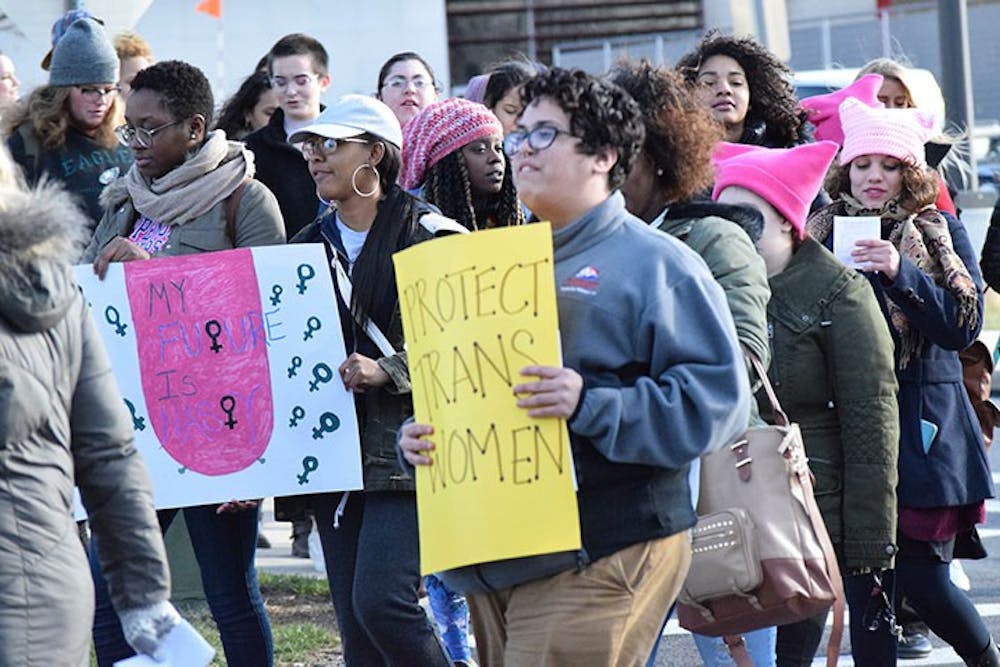Shippensburg University students kicked off Women’s History Month by taking to the streets of campus Thursday for the Women’s March. The march was organized by the SU Women’s Center with the goal of supporting “the rights of all marginalized people”, according to the Women’s Center’s page on ship.edu. Moreover, though, the march was another example of freedom of speech that we all enjoy in this country.
Unfortunately, that freedom is now under scrutiny from lawmakers. Following a protest-heavy beginning of 2017, exemplified by Black Lives Matter and Dakota Access Pipeline (DAP) protests — along with the Women’s March on D.C. — light has been shone on proposed bills that would further criminalize protesters. This is a slippery slope that we do not care to go down.
Laws aimed at protests have been proposed in 16 separate states at this point, and in North Dakota, Gov. Doug Burgum has already signed four bills using emergency provisions following the evacuation of the DAP protest camp, according to The New York Times.
Some of these laws aim to curtail violence by more strictly punishing rioters. Others seem to simply exist because they discourage expression of first amendment rights. South Dakota’s governor recently passed a law that gives him the power to enact a “safety zone” where he sees fit. Anyone who enters the zone can be fined, according to The Hill. In Tennessee, legislation would expunge liability from motorists who accidentally hit protesters that are, “deliberately blocking a street,” according to the New York Times.
While we agree that all demonstrations should remain peaceful, we question the motives behind these laws. It is our belief that protesting is, by its nature, disruptive. If it were not, then why would anyone protest in the first place?
Think about how Vietnam War protesters were demonized before the Pentagon Papers. Think about historic events like the Boston Tea Party. Do you believe the British were fond of that demonstration?
While we acknowledge that these situations may be different from the one we are in today, we also acknowledge that history would not have been made had people not assembled and stood up for what they believed in. While you are free to question the merit of someone’s gripes, they are just as free to assemble in mass to make a statement. That is Democracy.
To begin limiting the ability of citizens to express themselves freely is to head down a slippery slope toward tyranny. Demonstrations have laid the foundation with which this country was built on. The right to assemble is fundamental, and to impede it is an attack on free speech.
The opinions expressed in this article are solely those of the writer and are not representative of The Slate or its staff as a whole.




The Slate welcomes thoughtful discussion on all of our stories, but please keep comments civil and on-topic. Read our full guidelines here.